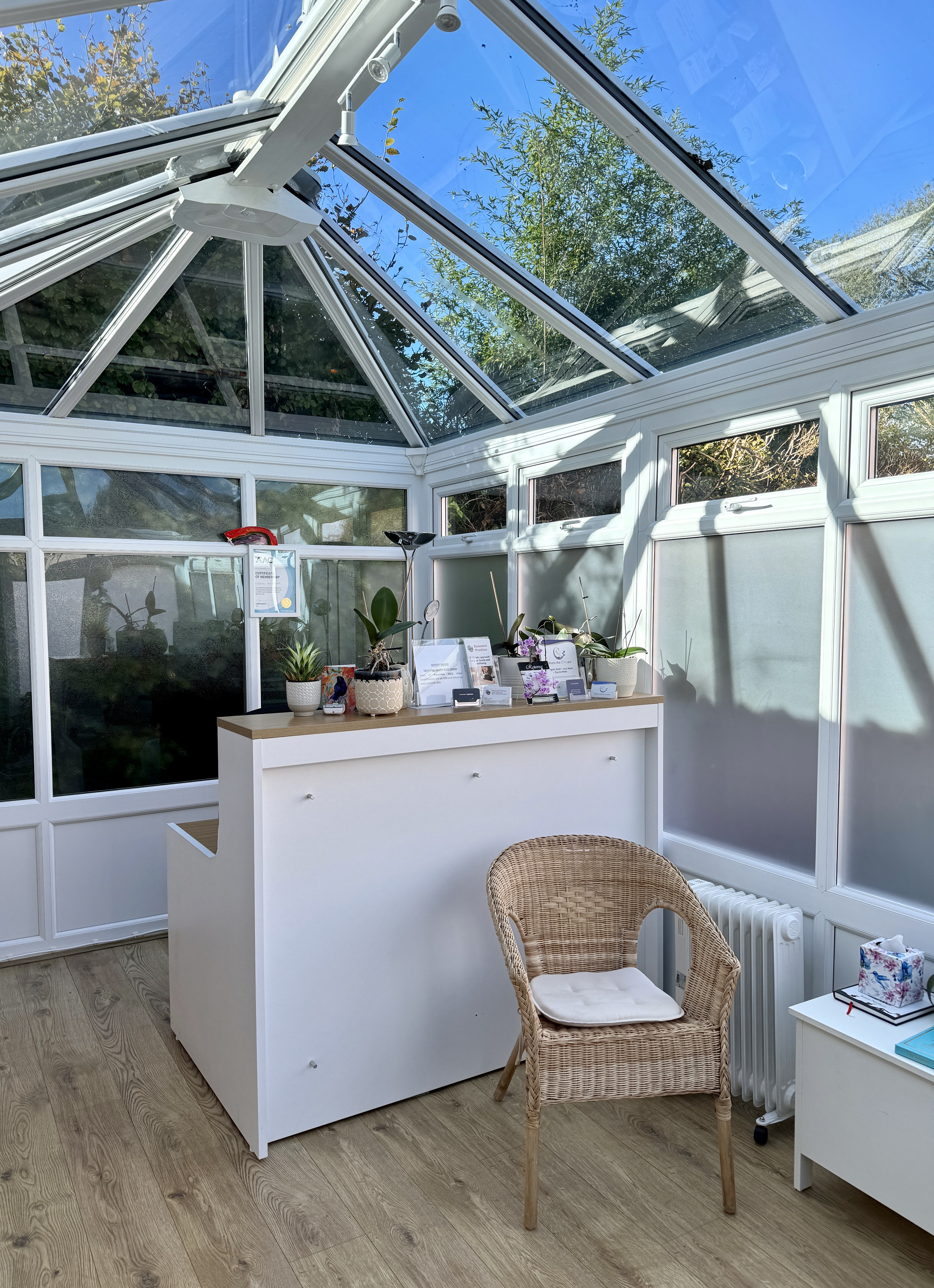WOMEN'S HEALTH
Physiotherapy
Marlborough, Wiltshire
Women's Physio by Hatch is in full swing.
Note: We offer a fully inclusive women's health physiotherapy service for ALL WOMEN. You do not need to be an athlete or even athletic.
We offer physiotherapy sessions from a bright, quiet and private clinic space in Marlborough in Wiltshire.
Kat is an HCPC registered Women's Health Physiotherapist with a special interest in supporting pre and postnatal clients.
Book your in-person physiotherapy session today.
Pregnancy +
Kat is extremely passionate about treating and working with pregnant women.
What we do:
- Musculoskeletal issues:
- Pelvic girdle pain, sacroiliac joint pain and/or pubic symphysis pain
- Low back pain
- Thoracic and rib pain
- Neck pain
- Wrist pain and Carpel Tunnel syndrome
-
Assessment and management of abdominal wall function and managing abdominal wall separation
- Pelvic floor concerns:
- Assessment of pelvic floor internally and/or using real time ultrasound
- Labour preparation: perineal massage, pelvic floor release and how to push in labour
- Incontinence
- Symptoms of increased pelvic floor tone or tightness including: painful intercourse (dyspareunia), coccyx/ tailbonepain, constipation, bladder pain
- Birth skills including:
- Active birthing skills
- Birth positions
-
Optimising baby position with body balancing techniques
Postpartum +
It will take time to recover from birth and there is a lot to understand about your postpartum body. The experience will be different for everyone. We are here to help.
You may be experiencing some new uncomfortable symptoms, or you may be looking to return to exercise safely. I am passionate about educating women about preventable injuries that can occur without proper rehabilitation postpartum.
We recommend a comprehensive post natal assessment around 6 weeks post the delivery of your baby, or anytime after your baby is born, before returning to exercise. This might be 6 months or 6 years post partum, it is never too late!
We complete a full body assessment with particular attention on:
-
Pelvic floor assessment
-
Abdominal wall assessment using real time ultrasound
-
Musculoskeletal screening: monitoring for areas of overload or strain, restriction in movement or muscle weakness.
Kat is experienced in managing specific concerns including:
-
Incontinence of bladder and or bowel
-
Prolapse
-
Perineal tears
-
Pelvic pain
-
Painful sex (dyspareunia)
-
Wrist pain, thumb pain and Carpel Tunnel Syndrome
-
Persistent pelvic girdle pain
-
Chronic pelvic pain
Stress Urinary Incontinence +
Stress urinary incontinence (SUI) is the leaking of urine when you are doing something that causes an increase in pressure in your abdomen. For example, a cough, a sneeze, if you run or if you lift a weight. This can happen to both women who have had children and those who have not. In fact we see it quite a lot in our young, female sporting population as well.
The reason why it happens is incredibly complex.
Sometimes it is that there is simply too much pressure from above the bladder. Other times, there is not enough support from below the bladder.
A typical SUI assessment is likely to include an internal examination and full body assessment to figure out contributing factors.
Treatment will be different for everyone but might include:
-
Pelvic floor release / exercises
-
Optimising the way you breathe.
-
Releasing and retraining your ribcage
-
Retraining the way you use your abdominal wall.
-
Advice about exercise – what you can and can’t do.
-
Advice on lifestyle (ideal weight, when to rest, how to effectively empty your bladder, defecation dynamics, etc.)
-
Referring for pessaries and/or liaising if we think necessary to gynaecologists, urogynaecologist, colorectal surgeons, etc.
-
Advice and rehabilitation post surgery (if required)
-
Releasing and retraining any other part of the body that we think may be contributing to the problem.
Prolapse +
Pelvic organ prolapse is when one or more of the organs that sits in the pelvis descend. The organs that often do so are the bladder, bowel and uterus. This is a common condition with 40-50% of women over the age of 50 experiencing some degree of prolapse.
Prolapse is assessed by internal examination and full body assessment to check for contributing factors. We also have the facility of a real time ultrasound machine for assessment if there is a need.
Symptoms:
-
Heaviness or a dragging feeling vaginally, usually worse at the end of the day or after exercise
-
A bulge at the entrance of the vagina, again usually at the end of the day
-
Difficulty emptying your bladder completely, sometimes a slow flow initially
-
Low back ache
-
Painful intercourse
-
Difficulty emptying your bowels
Treatment options are different for each and every person, but can include:
- Pelvic floor release / exercises
- Optimise the way you breathe
- Release and retrain your ribcage
- Retrain the way you use your abdominal wall
- Advice about exercise – what you can and can’t do
- Advice on lifestyle (ideal weight, when to rest, how to effectively empty your bladder, defecation dynamics, etc.)
- Refer and liase if we think necessary for pessaries or to gynaecologists, urogynaecologist, colorectal surgeons, etc.
- Advice and rehabilitation post surgery (if it is required to support your prolapse
Bright Private Clinic Space: Book your in-person appointment with Kat in Marlborough, Wiltshire UK
Facilities: Private clinic room for assessment, real time ultrasound assessment available, treatment and manual therapy. Small waiting area with refreshments, cloakroom and WC
We have the luxury of the use a CrossFit gym facility 100m away which we can use with clients on a case-by-case basis

Find Us: The Conservatory Annexe, 55 George Lane, Marlborough, Wiltshire, SN8 4BY
Our clinic space is owned and operated by "Elemental Practices" at the back of Kennet Pharmacy.
Parking: We have a free parking spot under the tree by the Kennet Pharmacy. It's unmarked, but please park as close to the red bin as possible.
.png)
